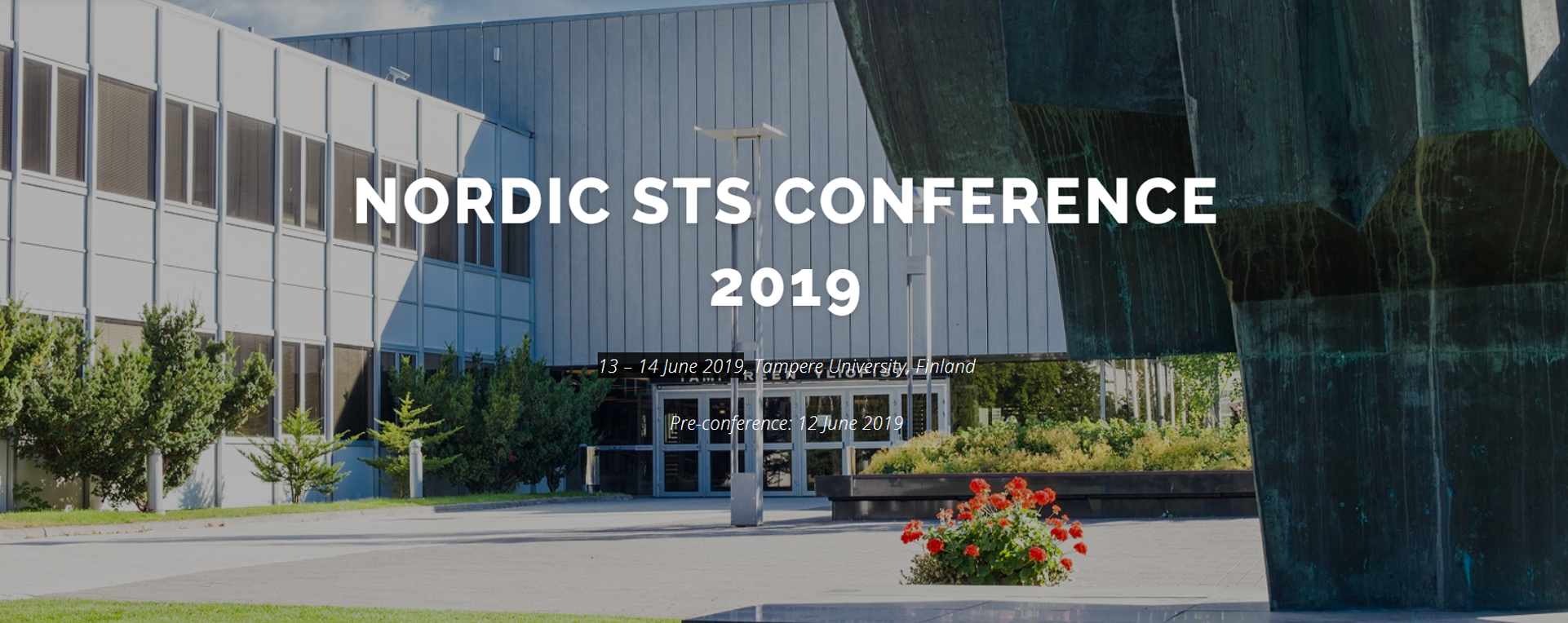
The field of science and technology studies (STS) has become increasingly prominent in the Nordic countries. The purpose of the biennial Nordic STS conference is to promote exchange of ideas and collaboration among STS scholars by providing a regional forum for presenting on-going research, networking, and initiating new ideas and conversations.
The Nordic STS conference 2019 is coming up next week from 13. – 14. June 2019 at Tampere University and TiP members are a part of it! Follow Baki Cakici, Christopher Gad, Lise Røjskjær Pedersen, Vasilis Galis and Vasiliki Makrygianni at this years conference.
Find the full program here and check out TiP’s contribution below:
Thursday 13 June 2019 | 10.45 – 12.05 | Parallel sessions 1 – Care in STS – objects, transformations and politics
A citizen is born: Identification numbers in midwifery practice
Baki Cakici, IT University of Copenhagen
Numbering and counting are essential methods for the state to know and govern populations. In Denmark, every child is assigned a Central Person Register (CPR) number shortly after birth, and the number links the infant and the parent(s) to larger state infrastructures. In the vast majority of cases, the responsibility for assigning the number lies with the midwife attending the birth of the infant.
Following Michelle Murphy’s insight that the notion of population relies on an epistemology that objectifies and dehumanises life, I attend to the frictions between the political subjectivities enacted by the CPR number and the expectations of intimacy in interpersonal care by midwives before, during, and after childbirth. I discuss how caring in the moment and caring for the future often demand conflicting responses. These are organised around three encounters: the assignment of substitute numbers, the use of the CPR number in emergencies, and discussions of the identification bracelet assigned to all admitted patients.
In this talk, I build toward a larger argument on how the CPR enacts subjects that can be addressed by the state from the moment of birth, and how the assignment of a CPR number at the moment of birth exemplifies the tension between care and control that permeates the welfare state.
See more here.
Friday 14 June 2019 | 13.30 – 14.30 | Parallel sessions 6 – Infrastructuring migration: doing STS within/about mobility
Digital practices for LGBTQ+ solidarity: narratives from Greece
Vasilis Galis & Vasiliki Makrygianni, IT University of Copenhagen
Migrants’ entanglements with ICTs reveals a wide spectrum of spaces and resistance practices that extend from the human body to transnational borderlands (Gillespie et al 2016). In this paper, we investigate how ICTs at the disposal of migrants not only question the very idea of citizenship and (il)legality (Galis & Summerton 2018) but also disturb dominant sexuality norms and act as a shield from sexist practices. Sexuality has been a terrain for creating and maintaining racialized, gendered, economic and geopolitical discriminations (Manalansan 2006, Palmary 2016). In migrants’ case, sexual orientation is a battleground not only for those on route trying to abolish borders of every kind but also for those settled in national territories. After crossing demarcated borderlines, moving populations continue to be governed and disciplined in sexual terms, while trying to access economic, health and welfare systems.
Based on an ongoing research we have been conducting since 2016 in the Greek territory, we highlight the ways social media, smartphones with multiple apps, computers and other digital technologies subvert dominant practices on sexuality and enact patterns of use in terms of navigation, information, contact, care and solidarity among others. In this respect, we investigate different aspects of migrants’ journey in order to trace self-organized, antisexist, and solidarity practices amongst members of LGBTQ+ communities and discuss their characteristics, their limits and potentialities. Sources of empirical material such as interviews with people on the move or settled in Greece, migrants’ narrations and published articles are used in order to broaden the understanding of sexuality discourse on migration and of bordering practices posed from heteronormativity and sexual norms. In this respect, we explore the ways sexuality is entangled with ICT and migration practices, and how are existing digital platforms reconfiguring spaces of sexism and solidarity networks for the LGBTQ+ communities. Focusing on sexuality, the paper aims to raise our understanding of queer migrants’ routes everyday practices and life conditions. Moreover, we address the potentials of ICTs for non-heteronormative subjectivities and the ways they challenge (or fail to challenge) borders of sexism. All in all, we aim to show how sexuality matters not only for critically addressing and abolishing bordering practices but also for highlighting terrains of (homo)solidarity and encounter.
See more here.
Friday 14 June 2019 |15.00 – 16.00 | Parallel sessions 7 – Data, governance, welfare: Nordic perspectives
Cybernetic visions? Data experiments in Danish public governance
Christopher Gad & Lise Røjskjær Pedersen, IT University of Copenhagen
We take our cue from a particular vision about public governance with/through data that Pedersen encountered during recent fieldwork amongst public managers in Danish municipalities. In particular we discuss a vision of designing an ideal ‘management cockpit’. In the words, of one of Pedersen’s interlocutors this cockpit would be like ‘placing yourself in the front-seat, exactly like in a car. There is a speed indicator, tachometer, fuel gauge and altimeter, if it is a plain. These are the main things that the manager needs’. In the public manager’s cockpit various aggregations of data is on display; selected, produced and designed for easy access and overview, suppposedly enabling better executive decision-making.
Databased or datadriven management is seen as key in contemporary Danish public governance; as a means to affect both increased efficiency and innovation, to enable both better organizational learning and better control. We reflect on ‘the cockpit’ as an experimental managerial vision able to ‘contain’ and exploit such tensions. The cockpit and similar data experiments seem to gather around the figure of ‘the manager’ and the cultivation of skills such as curiosity and imagination. These are envisioned as a new kind of mindset to be put to use as a way of improving and optimizing management through relying on up-to-date ‘evidence’.
Such ideas, usually associated with governing frameworks such as New Public Governance or ‘networked management’ seems also to resonate with ‘cybernetics’, including the vision of building databased organizational or societal ‘control rooms’. Following Pickering’s analysis of cybernetics, as an amodern ontology, cybernetics also seems able to contain tensions between managing the future with data, while remaining open to its unpredictability. As a heuristic move, we juxtapose historical aspects of cybernetics with ethnographic observations to discuss implications of this kind of databased management currently gaining attraction in Danish governance.
See more here.
